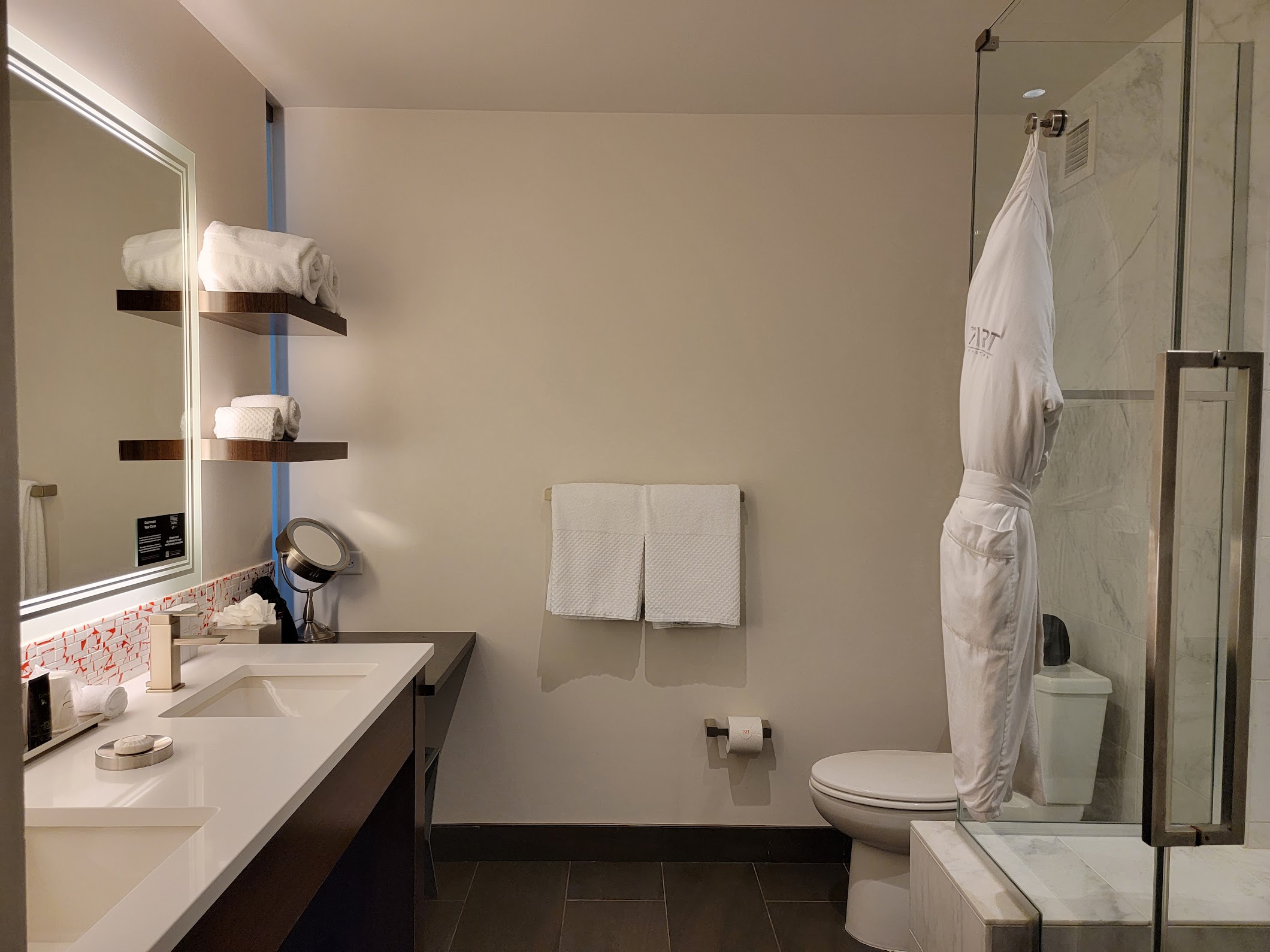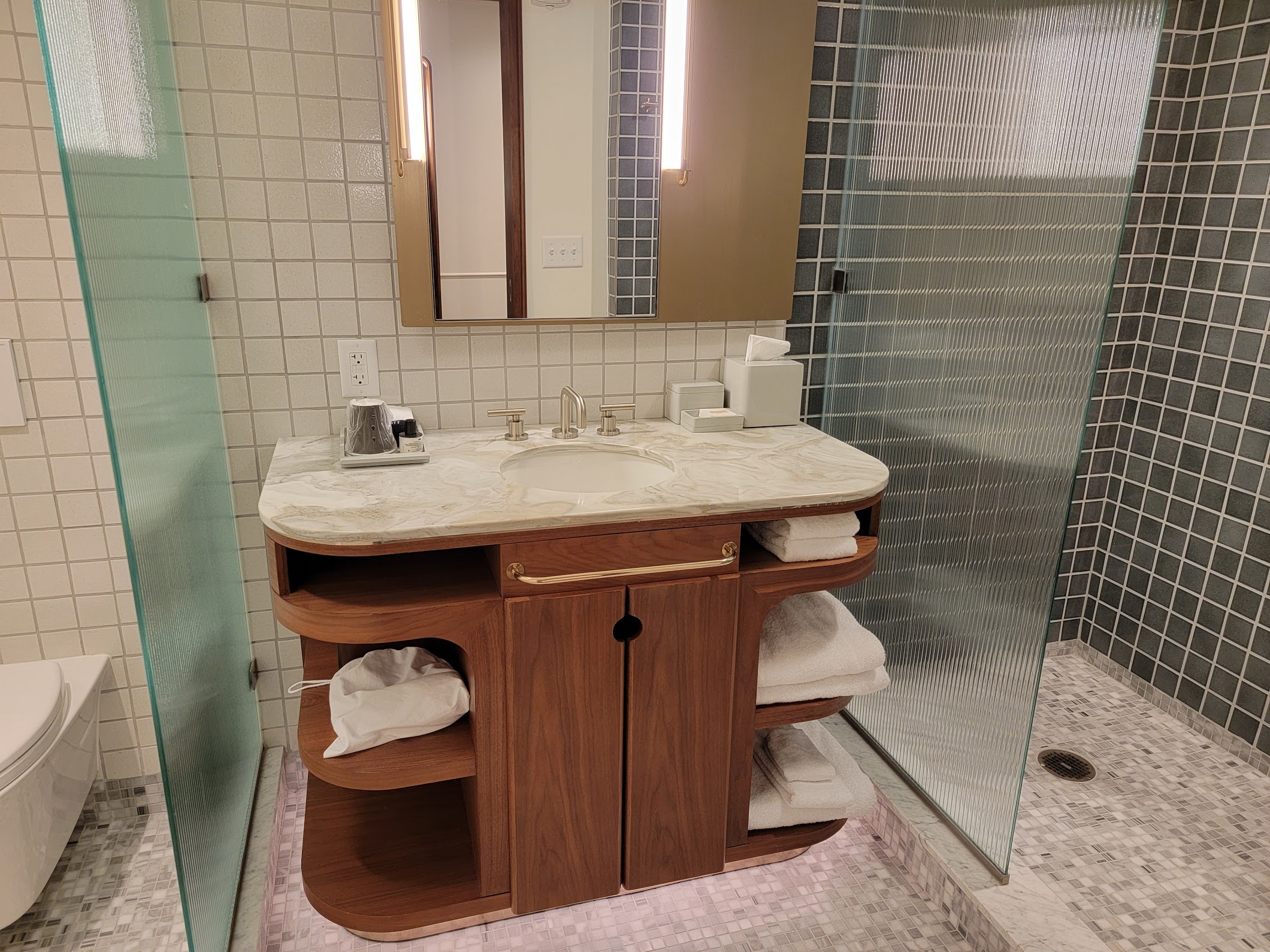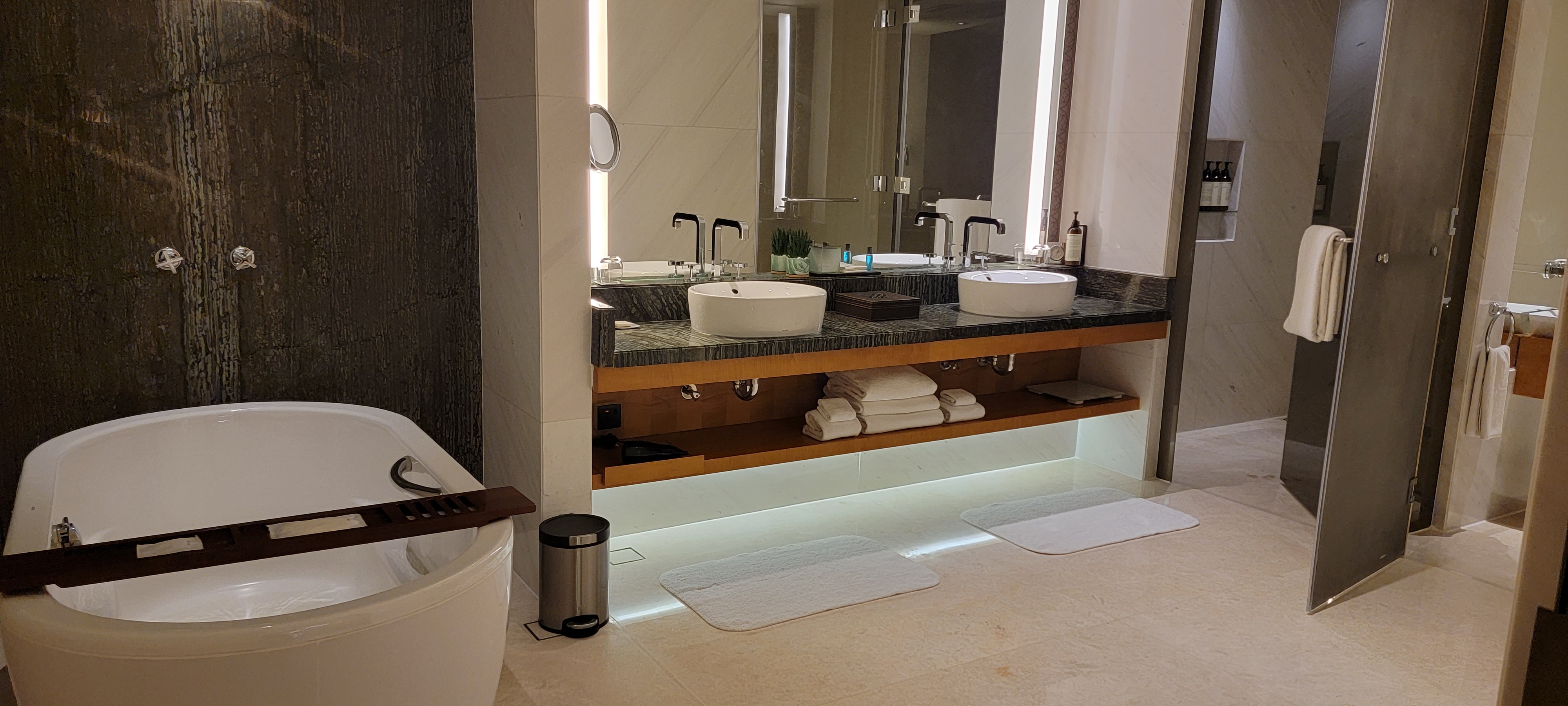Guests are being sent to jail for stealing hotel towels. Hotels have been embedding RFID chips in towels for more than a dozen years. And this leads to actual prosecutions for towel theft.
One hotel in Europe lays out the consequences for stealing towels. You will reported to the government and fined up to 15,000 euros (~ US$17,600).
We inform you that all of our towels are equipped with an invisible localizable chip from the RFDI system. The towels cannot be carried out of your room. In the event that the towels do not remain in the apartment, the company reserves the right to denounce you to the relevant agency with fines from €300.00 to €15,000.00 attentively. THE DIRECTION.
A single hotel has saved $16,000 per month by reducing its towel thefts each month from 4,000 down to 750 by attaching washable RFID tags to its towels. That comes mostly from letting guests know that the towels are tagged, and this serves as a deterrent. Presumably the deterrent would work just as well by telling guests that the RFID tags are in the towels, without any need to make the actual investment in RFID, at least as long as they are able to keep their lack of technology investment a secret.
If one hotel can save $16,000 per month or $192,000 per year – figures that were prior to pandemic inflation – you’d expect $28.8 billion a year in savings? Not quite.
- Not all hotels use the same quality of towels, and on average they’re replacing towels every couple of months anyway.
- Hotels aren’t spending more than $1 billion a year on towels roughly. So the savings from that one hotel don’t scale industry-wide. Still, there’s big money involved in hotel towels!

The Nairobi Hilton prosecuted someone for stealing two towels and they received a two year sentence. In the early aughts, IHG promoted ‘towel amnesty day’ but honestly I wouldn’t expect towel theft to be so common in a world of checked bag fees as there was back then, who travels with extra space for towels?
But guests steal far more than just towels, with 5-star hotels more likely to see higher-value items taken – like tablet computers, artwork, TVs, and mattresses – though it’s unclear whether this is because they are more likely to have higher-value items in the first place or whether wealthier guests are more likely to steal?

One study found that guest nationality correlated with preference for stealing specific kinds of things from hotels:
- Germans and Brits mainly take towels, bathrobes, and toiletries
- Austrians prefer dishes and coffee machines
- Americans often steal pillows and batteries
- Italians favor wine glasses
- French target TVs and remote controls

Forty nine hotels reported mattresses being stolen in a two year period.Many hotels don’t admit the thefts so the real number is higher. How does a guest even do this without getting caught? Even if they don’t get noticed walking through the lobby with a mattress, when housekeeping goes into the room to turn the room for the next guest, and finds the mattress gone, the hotel knows who stayed there last!
In 2018 a family was caught in Bali with items stolen from the hotel packed in their luggage. The hotel demanded they open their bags for inspection and a big argument ensued. As the bags are searched one stolen item after another gets revealed:
We’ve heard about a grand piano stolen from a Sheraton lobby, and about guests who steal televisions from their room. And, would you believe: carpet, light fixtures, curtains and mirrors? Even door hinges have been stolen. The Four Seasons Beverly Wilshire (the Pretty Woman hotel) had a fireplace stolen.

The thing is – at least until hotels began replacing miniature bottles with wall-mounted toiletries – hotels actually wanted you to take those with you. They don’t want you to raid the housekeeping cart, but the ones in your room were fair game in hopes you would think of them and the brand when you use them. Hyatt specifically implored you to do it!
So while there’s skepticism over efforts to combat towel theft, within the bounds of good hospitality it makes economic sense.


These hotel properties must be part of the Hertz Hotel chain.
I cannot believe there is such demand for USED towels.
“Thou shalt not steal…”
Never had the slightest inclination to steal a towel from a hotel I stayed in (or anything else for that matter)…..
What would drive anyone to be so dishonest, I wonder? ….Could it possibly be the (patronage) pushback resulting from hotels that force their customers through automated programs to tip a certain percentage just to check-in….?
To charge $30 a day for parking to customers who didn’t arrive with an automobile….? To charge a Resort Fee of $50 a night? To attach $100 a night holds to your card for incidentals and room service when they don’t even offer room service, as their own site restaurants are still closed 3 years post pandemic?
Food for thought.
Really have a hard time pulling out the (not stolen) crying towel for these sad victims of customer dishonesty.
Both sides are corrupt.
But the hotels are, conservatively, probably 20 times more corrupt than the most dishonest towel thief.
@David. I wouldn’t compare this to Hertz. I don’t think there would be any criticism of Hertz going nuclear over customers regularly keeping the cars they rented. The issue with Hertz is they go nuclear over cars the customers actually returned.
In this case, the hotels are charging outrageous fees (and yes, they’re outrageous) for STEALING a towel (or pillows, or blankets, or pianos)
I guess the question is whether people who have NOT stolen hotel crap are being charged….
Yeah, I’m with @1990 on this. Very simple, black-and-white issue here.
Almost nothing is black and white.
My understanding was that (apparently) unused individual toiletries have to be thrown out when the room is turned. I used to always take my unused ones to give to a women’s shelter, which somone at work arranged. AAA offices often will collect them.as well..
How about the spare roll of toilet paper? Is that theft or legal greediness?
In college, I heard of another student saving burned out light bulbs and then replacing one of the bulbs in a hotel room. That student also considered saving old AAA batteries and replacing them in the remote but decided that the brand would be completely different and easily noticed.
Stealing towels is really low.
@David P — Where folks are rightly upset with Hertz is when they make false claims, for damages that didn’t happen, and attempt to charge you involuntarily, or send you to collections. Deny, dispute, and send your cease and desist letters as needed. Fight and shame bad actors and scammers.
I agree people have no business stealing items from hotels. But can they be sure? Once you leave the property, couldn’t any staff member who gets into the room steal things and blame the guest? Unless bags are searched on the way out, which they aren’t, how can anyone prove they weren’t the thief?
“Bunch of savages in this hotel.”
back when I used to carry a garment bag on my business trips I would take the shirts of the wire hangers and put them on the hotel wood hangers. Occasionally I would take one of the wood hangers home. Never more than one but after a few years I had a dozen or so wood hangers from the Fairmont (with logo) that I hung my suits on at home and I stopped “collecting” them. That was 30 years ago and they are still in my closet — and I’ve spent thousands on Fairmont since then.
Confession time over.